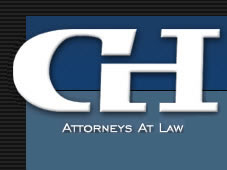3/14/2019· Finance
ERISA, the Fiduciary Standard and Where We Go from Here
By: Marguerita Cheng
Putting the DOL's investor-protection rule into historical context sheds new light on what the future may hold for retirement savers.
By: Michael Garibaldi, CPA, ABV, CFF, CGMA
Tel: 516-288-7400
Email Mr. Garibaldi
When a dishonest CFO or controller cooks the books, it can be devastating for the victim organization. In addition to direct financial losses, financial statement frauds erode trust between management and other stakeholders, including lenders, investors and employees who own company stock. Unfortunately, it's common for smaller companies to associate financial misstatement with large public companies that focus heavily on earnings per share.
A recent study proves that the association may be flawed. In fact, smaller organizations need to understand how misstatement scams operate and work to reduce motives to commit this type of occupational fraud.
Less than 10% of the fraud schemes involve financial statement fraud, according to the 2016 Report to the Nations on Occupational Fraud and Abuse, published by the Association of Certified Fraud Examiners (ACFE). The study found that financial misstatement scams were significantly outnumbered by asset misappropriation (which occurred in more than 80% of cases) and corruption scams (35% of cases).
Though relatively uncommon, misstated financials clocked the greatest median loss ($975,000) of all types of occupational frauds. By comparison, median losses were only $125,000 for asset misappropriation and $200,000 for corruption.
Further breakdown of fraud cases by the ACFE shows that financial misstatement cases don't strike just large companies. Of the fraud cases in the 2016 study involving companies with 100 or more employees, approximately 9% involved financial misstatement. But when it came to cases involving smaller companies with fewer than 100 employees, the prevalence of financial misstatement increased to 12%.
What makes financial statement fraud especially problematic is that the costs can easily snowball out of control. For example, when a CFO fudges the numbers to make a company appear more profitable, the company will likely incur greater liability for taxes or dividends. It might be necessary to take on debt to make those payments, leading to higher interest costs. Or the company might try to acquire a healthy business to hide its own underperformance.
The ACFE defines financial statement fraud as "a scheme in which an employee intentionally causes a misstatement or omission of material information in the organization's financial reports."Methods for committing such fraud aren't just limited to the overstatement or understatement of assets or revenues.
For example, liabilities or expenses might be recorded improperly to make the company appear more liquid or profitable in the current accounting period. Or a dishonest employee could manipulate accounting cutoffs by recording revenues early and expenses late, which violates the accounting concept of matching expenses with the associated revenues in the same period.
Financial statement frauds also occur when the accounting rules call for the use of subjective estimates. A fraudster might conveniently forget to write off obsolete inventory or bad debts. Even more subtle are fraudulent financial statement disclosures that may skew or omit information to intentionally mislead investors. Most instances of financial statement fraud involve the perpetrator intentionally circumventing the system of internal and administrative controls.
According to the ACFE, individuals who committed financial statement fraud were more likely to be under excessive organizational pressure compared with those who perpetrated corruption or asset misappropriation.
Fraudsters may feel pressure to meet earnings expectations or satisfy merger criteria that are required to close a deal. They might commit financial statement fraud in an attempt to make the company look more profitable than it truly is, thereby boosting share prices, fulfilling loan covenants or allowing them to earn bonuses. Conversely, with family businesses, it's common for next-generation family members to feel pressure to prove they're worthy to take over the reins.
Based on the ACFE report, one way to prevent financial statement fraud is to eliminate internal pressure on employees to report exceptional financial results - and to set more realistic goals. Forensic accounting experts can review a company's bonus plans, familial dynamics and financial condition to help identify (and alleviate) high-pressure situations. Doing so can create a healthier work environment and minimize the motive to cook the books.
Michael J. Garibaldi, CPA, ABV, CFF, CGMA, has a strong background providing efficient and affordable solutions to the many complex issues facing the legal profession today. A Certified Public Accountant licensed by the State of New York, Mr. Garibaldi is Accredited in Business Valuation (ABV), and Certified in Financial Forensics (CFF) by the American Institute of Certified Public Accountants (AICPA). He is recognized as a Chartered Global Management Accountant by the Association of International Certified Professional Accountants.
©Copyright - All Rights Reserved
DO NOT REPRODUCE WITHOUT WRITTEN PERMISSION BY AUTHOR.

3/14/2019· Finance
ERISA, the Fiduciary Standard and Where We Go from Here
By: Marguerita Cheng
Putting the DOL's investor-protection rule into historical context sheds new light on what the future may hold for retirement savers.

4/3/2008· Finance
Trustee's Report: Chapter 11 Reorganization, Likelihood Of Success
The Debtors consist of 13 nursing facilities and a management company. The Debtors operations commenced in May 2004. Due to the age of the facilities, substantial maintenance expenditures have been, and likely will be, required on a going forward basis

10/1/2015· Finance
Effective Commercial Collection Techniques
By: Darryl Horowitt
It is an unfortunate fact of business that from time to time one of your customers will not pay for goods or services you provide. It is a frustrating and sometimes helpless feeling that you have knowing that even though you provided a valuable product or service, for reasons beyond your control you are simply not paid. How do you collect your money? What follows are some techniques that will help you effectively collect your receivables.




